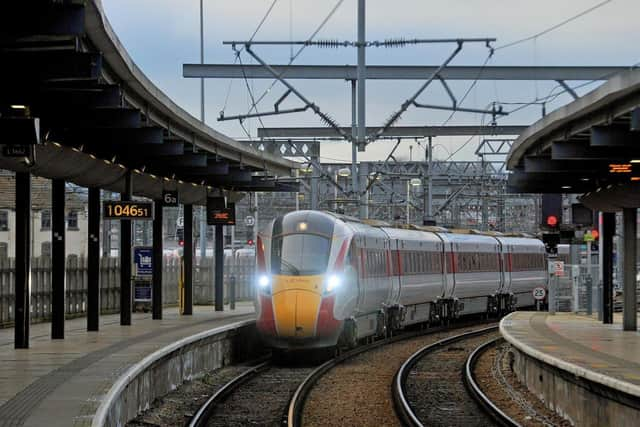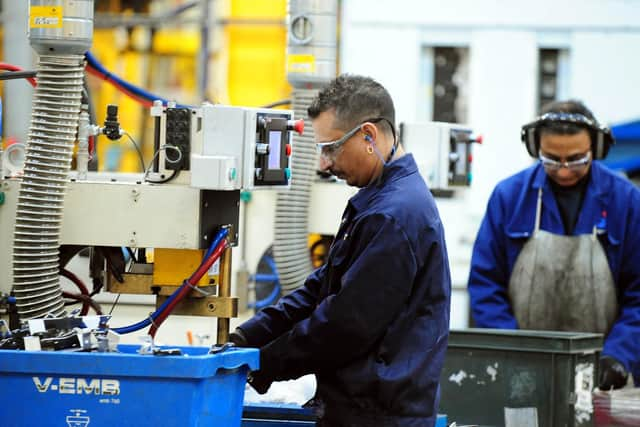Building a better future for Yorkshire will mean change for us all
The pandemic has accelerated the imperative for business to act more sustainably and address the issues of the future.
This was the common theme that ran throughout The Yorkshire Post’s inaugural Leadership Summit.
Advertisement
Hide AdAdvertisement
Hide AdThe digital event drew together some of the region’s leading business, political and social figureheads to discuss the issues of the day.


Based around three key sessions regarding the future of Yorkshire’s economy, how to build a green economy and addressing future skill levels, the summit heard repeated assertions that previous social and business practices had to change to a more ethical and sustainable model.
Mark Lynam, corporate director at Wakefield Council, told the first session that managing transport was crucial to the authority’s objectives.
“We don’t have a cat in hell’s chance of achieving our net zero obligations unless we tackle the issue,” he said.
Advertisement
Hide AdAdvertisement
Hide Ad“We simply, as an authority, cannot see the amount of cars that are on the road pre-pandemic continuing going forward, otherwise the achievement around net zero will not be met.”


Mr Lynam said that one third of carbon emissions in the city region were taken up by transport.
“The more we encourage and build on what we have seen over the last 18 months, with people wanting to take more sustainable transport solutions, the better,” he said.
“The risk is that if we don’t do that quickly, they will revert to previous habits and just think, ‘do you know what, it is just easier to get in my car and travel from my door to the door of the office’.
Advertisement
Hide AdAdvertisement
Hide Ad“The good thing is we have seen people continuing to try and do the right thing. The onus on us is to try and make the right types of investments now that will pay off in the long term to try and embed that change in travel habits.”
David Horne, managing director at LNER, the summit’s community partner, said that business travel was beginning to recover after the Covid-19 enforced shutdown and added that connectivity would still be important in the near to long-term future.
“Clearly, the region will still benefit from the transport links it has north to south,” he said.
“There is no doubt the past 18 months has seen a real rise in the consciousness of people towards environmentally friendly business and behaviour.
Advertisement
Hide AdAdvertisement
Hide Ad“We have seen that in the feedback of our surveys. There is a real shift taking place at the moment in terms of people choosing the training for sustainability issues.
“Cities in Yorkshire have really got to think about how do we change and evolve those cities to harness the fact that people want to travel in a more sustainable way. Clearly, that’s about trains but also about cycling, walking, buses – a complete system.
“There are going to be opportunities but we are going to have to think about how we plan our cities.”
Mr Horne’s views on sustainable transport were echoed by First Bus managing director Paul Matthews, who said that young people had been the demographic most inclined to return to bus travel.
Advertisement
Hide AdAdvertisement
Hide Ad"The pandemic has made us think differently and position our services differently to develop new relationships with complimentary businesses like Trinity here in Leeds, like Leeds Rhinos, The Piece Hall in Halifax to name just a few,” he said during the First Bus sponsored session.
“We will not be able to do what we need to help the region recover without those partnerships.”
Jonathan Webb, senior research fellow at IPPR North, said the move towards net zero could not be simply reduced to enforcing new behavioural practices on people.
He added: “To really get people on board with net zero, our research has shown us time and time again that you need to make a compelling case that it is not just about changing the way that we do things, it is about showing that there is tangible benefit to doing so.”
Advertisement
Hide AdAdvertisement
Hide AdThe Skills session saw Bradford Council leader Susan Hinchcliffe press for employment and skills to be integrated into every capital project, whether that is private or public.
And Natalie Doherty, director of quality, curriculum and innovation at The Source Skills Academy, issued an impassioned statement of support for apprenticeships.
“Apprenticeships have got a really strong position in the current market,” she said.